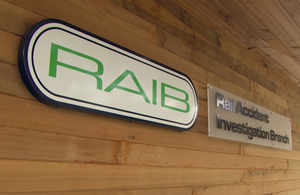Plan for Jobs: Chancellor increases financial support for businesses and workers
- open businesses which are experiencing considerable difficulty will be given extra help to keep staff on as government significantly increases contribution to wage costs under the Job Support Scheme, and business contributions drop to 5%
- business grants are expanded to cover businesses in particularly affected sectors in high-alert level areas, helping them stay afloat and protecting jobs
- grants for the self-employed doubled to 40% of previous earnings
In recognition of the challenging times ahead, the Chancellor said he would be increasing support through the existing Job Support and self-employed schemes, and expanding business grants to support companies in high-alert level areas.
This builds on agreements reached with Local Authorities moving to Alert Level very high, with extra support for businesses, jobs and the economic recovery.
Chancellor of the Exchequer Rishi Sunak said:
I’ve always said that we must be ready to adapt our financial support as the situation evolves, and that is what we are doing today. These changes mean that our support will reach many more people and protect many more jobs.
I know that the introduction of further restrictions has left many people worried for themselves, their families and communities. I hope the government’s stepped-up support can be part of the country pulling together in the coming months.
Job Support Scheme (JSS)
Recognising the pressure businesses in some sectors and areas are facing, today’s announcement lightens the burden of keeping on staff.
When originally announced, the JSS – which will come into effect on 1 November – saw employers paying a third of their employees’ wages for hours not worked, and required employers to be working 33% of their normal hours.
Today’s announcement reduces the employer contribution to those unworked hours to just 5%, and reduces the minimum hours requirements to 20%, so those working just one day a week will be eligible. That means that if someone was being paid £587 for their unworked hours, the government would be contributing £543 and their employer only £44.
Employers will continue to receive the £1,000 Job Retention Bonus. The Job Support Scheme Closed for businesses legally required to close remains unchanged.
Self-employed grant
Today’s announcement increases the amount of profits covered by the two forthcoming self-employed grants from 20 per cent to 40 per cent, meaning the maximum grant will increase from £1,875 to £3,750.
This is a potential further £3.1 billion of support to the self-employed through November to January alone, with a further grant to follow covering February to April.
Business Grants
The Chancellor has also announced approved additional funding to support cash grants of up to £2,100 per month primarily for businesses in the hospitality, accommodation and leisure sector who may be adversely impacted by the restrictions in high-alert level areas. These grants will be available retrospectively for areas who have already been subject to restrictions, and come on top of higher levels of additional business support for Local Authorities moving into Tier 3 which, if scaled up across the country, would be worth more than £1 billion.
These grants could benefit around 150,000 businesses in England, including hotels, restaurants, B&Bs and many more who aren’t legally required to close but have been adversely affected by local restrictions nonetheless.
Further information
Job Support Scheme – open
- The JSS starts to operate from 1 November and covers all Nations of the UK. For every hour not worked, the employee will be paid up to two-thirds of their usual salary.
- The government will provide up to 61.67% of wages for hours not worked, up to £1541.75 per month (more than doubling the maximum payment of £697.92 under the previous rules). The cap is set above median earnings for employees in August at a reference salary of £3,125 per month.
- Example: a typical full-time employee in the hospitality industry is paid an average of £1,100 per month. Under the Jobs Support Scheme for open businesses, they will still take home at least £807 a month. All the employer needs to pay is a total of £283 a month or just £70 a week; the government will pay the rest.
- Employers using the scheme will also be able to claim the Job Retention Bonus (JRB) for each employee that meets the eligibility criteria of the JRB. This is worth £1,000 per employee. Taking JSS-Open and JRB together, an employer could receive over 95% of the total wage costs of their employees if they are retained until February.
Self Employed
- The government will provide two taxable SEISS grants to support those experiencing reduced demand due to COVID-19 but are continuing to trade, or temporarily cannot trade.
- It will be available to anyone who was previously eligible for the SEISS grant one and grant two, and meets the eligibility criteria.
- Grants will be paid in two lump sum instalments each covering 3 months. The first grant will cover a three-month period from the start of November 2020 until the end of January 2021. The government will pay a taxable grant which is calculated based on 40% of three months’ average trading profits, paid out in a single instalment and capped at £3,750.
- The second grant will cover a three-month period from the start of February until the end of April 2021. The government will review the level of the second grant and set this in due course.
Business Grants
- We are providing additional funding to allow Local Authorities (LAs) to support businesses in high-alert level areas which are not legally closed, but which are severely impacted by the restrictions on socialising. The funding LAs will receive will be based on the number of hospitality, hotel, B&B, and leisure businesses in their area.
- LAs will receive a funding amount that will be the equivalent of:
- For properties with a rateable value of £15,000 or under, grants of £934 per month.
- For properties with a rateable value of between £15,000-£51,000, grants of £1,400 per month.
- For properties with a rateable value of £51,000, grants of £2,100 per month.
- This is equivalent to 70% of the grant amounts given to legally closed businesses (worth up to £3,000/month).
- Local Authorities will also receive a 5% top up amount to these implied grant amounts to cover other businesses that might be affected by the local restrictions, but which do not neatly fit into these categories.
- It will be up to Local Authorities to determine which businesses are eligible for grant funding in their local areas, and what precise funding to allocate to each business – the above levels are an approximate guide.
- Businesses in Very High alert level areas will qualify for greater support whether closed (up to £3,000/month) or open. In the latter case support is being provided through business support packages provided to Local Authorities as they move into the alert level. The government is working with local leaders to ensure the Alert Level very high packages are fair and transparent.

